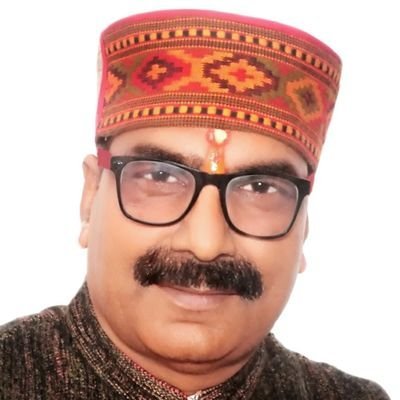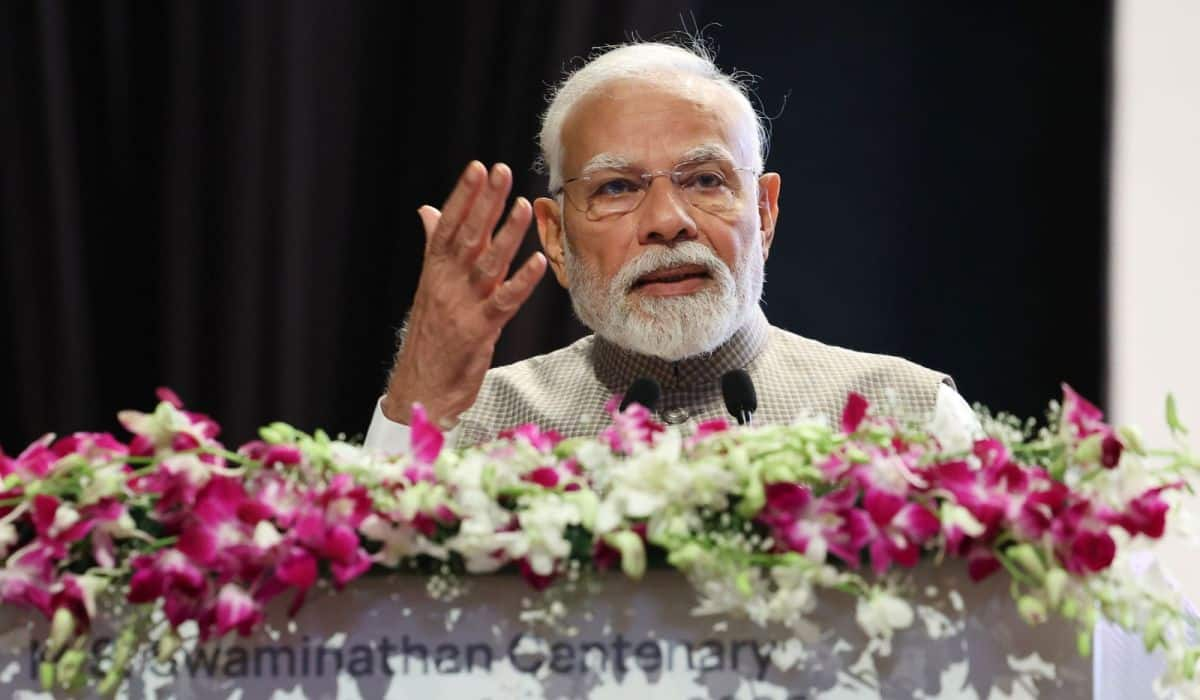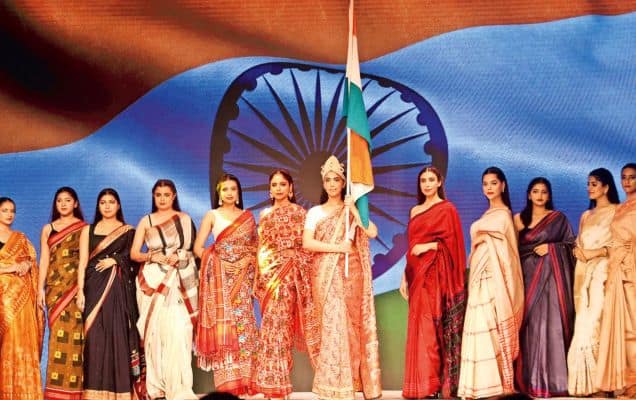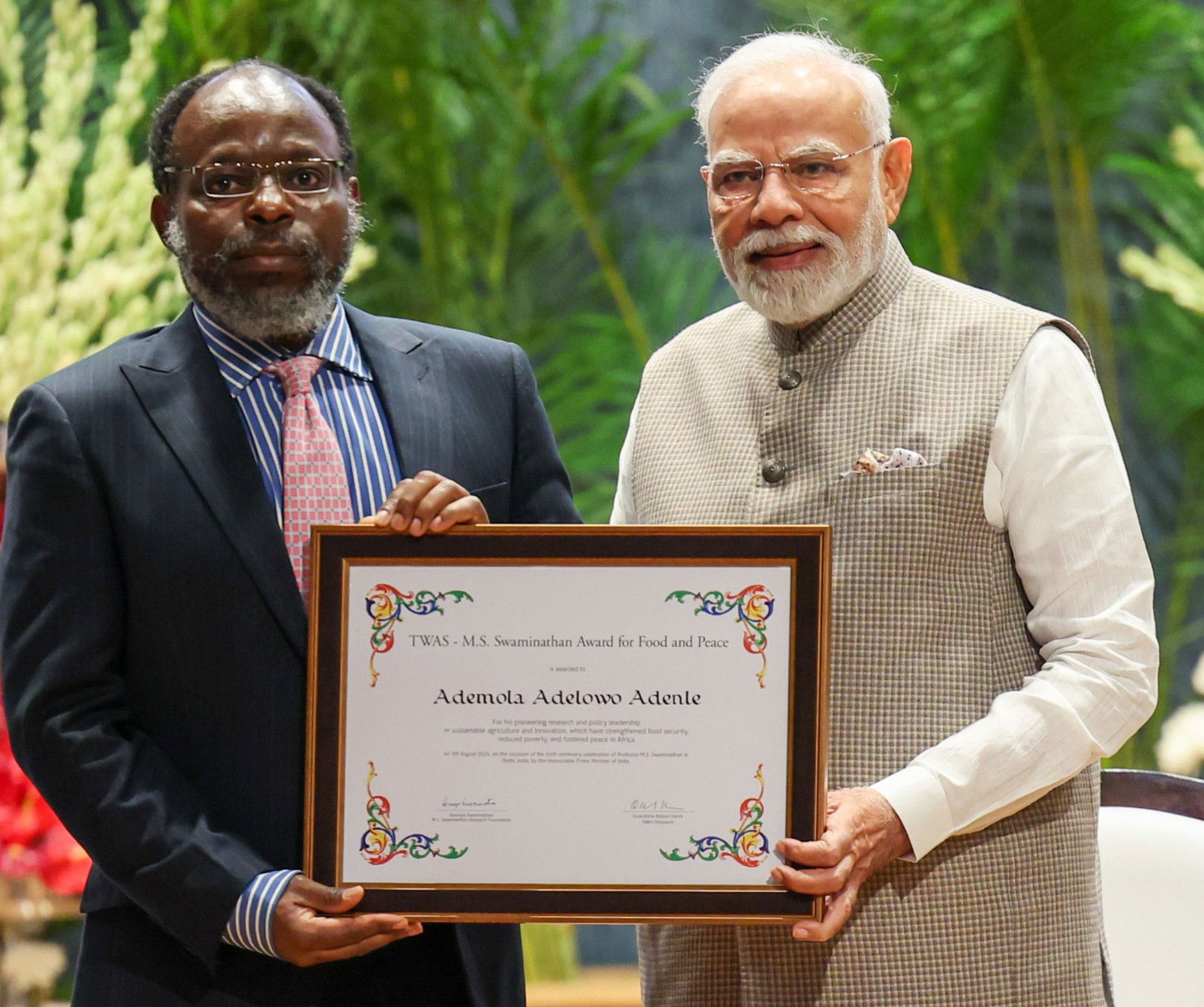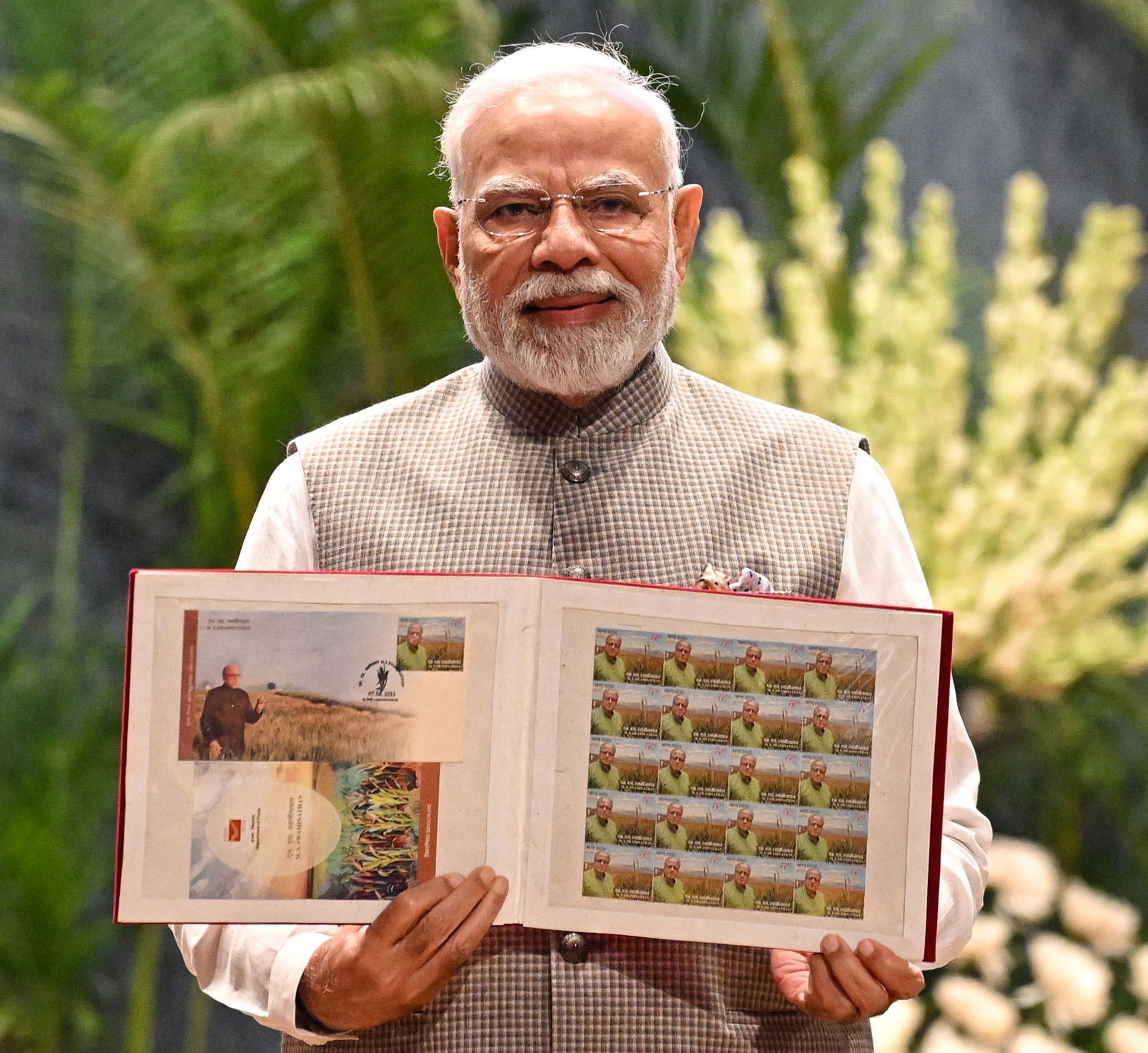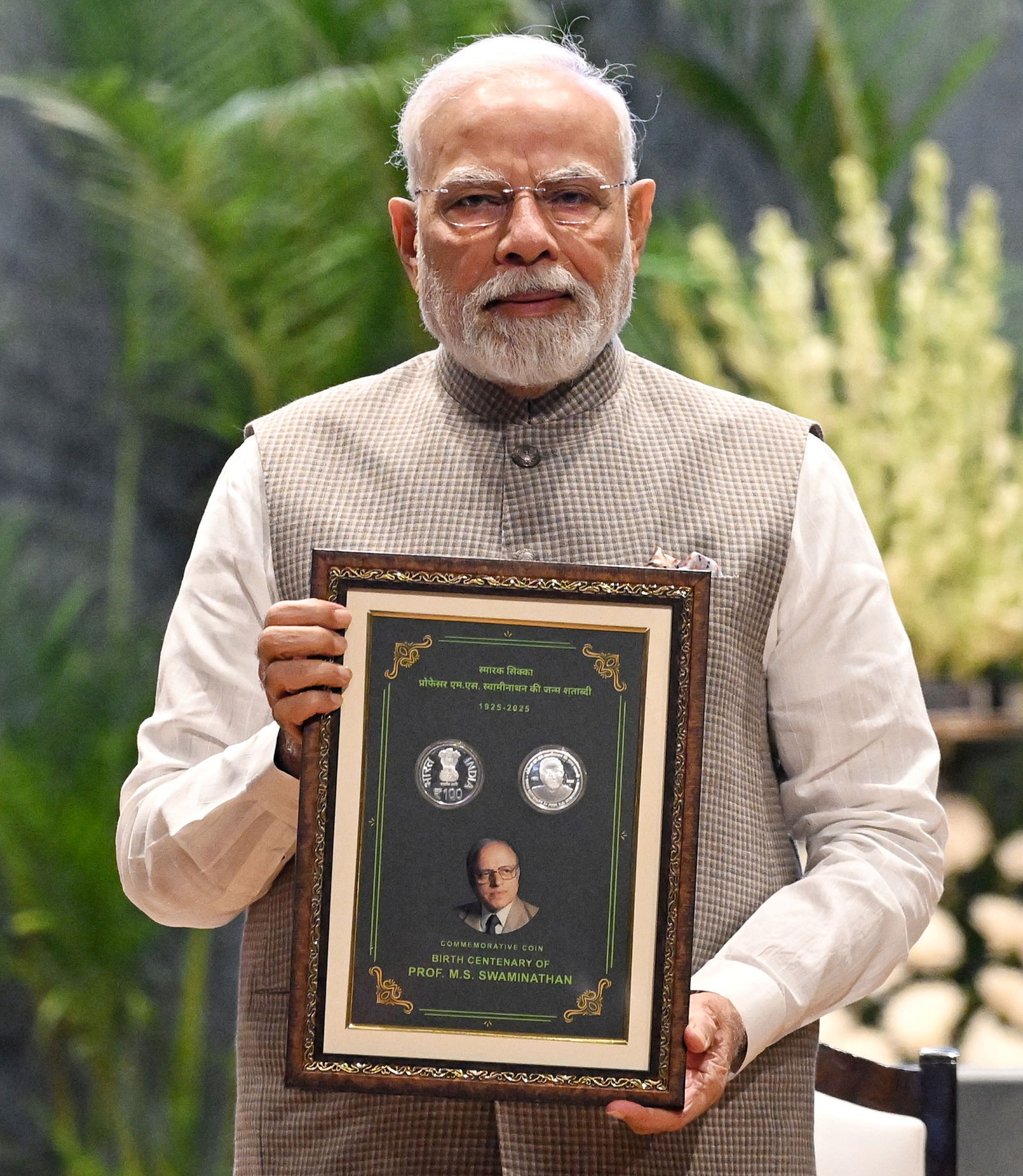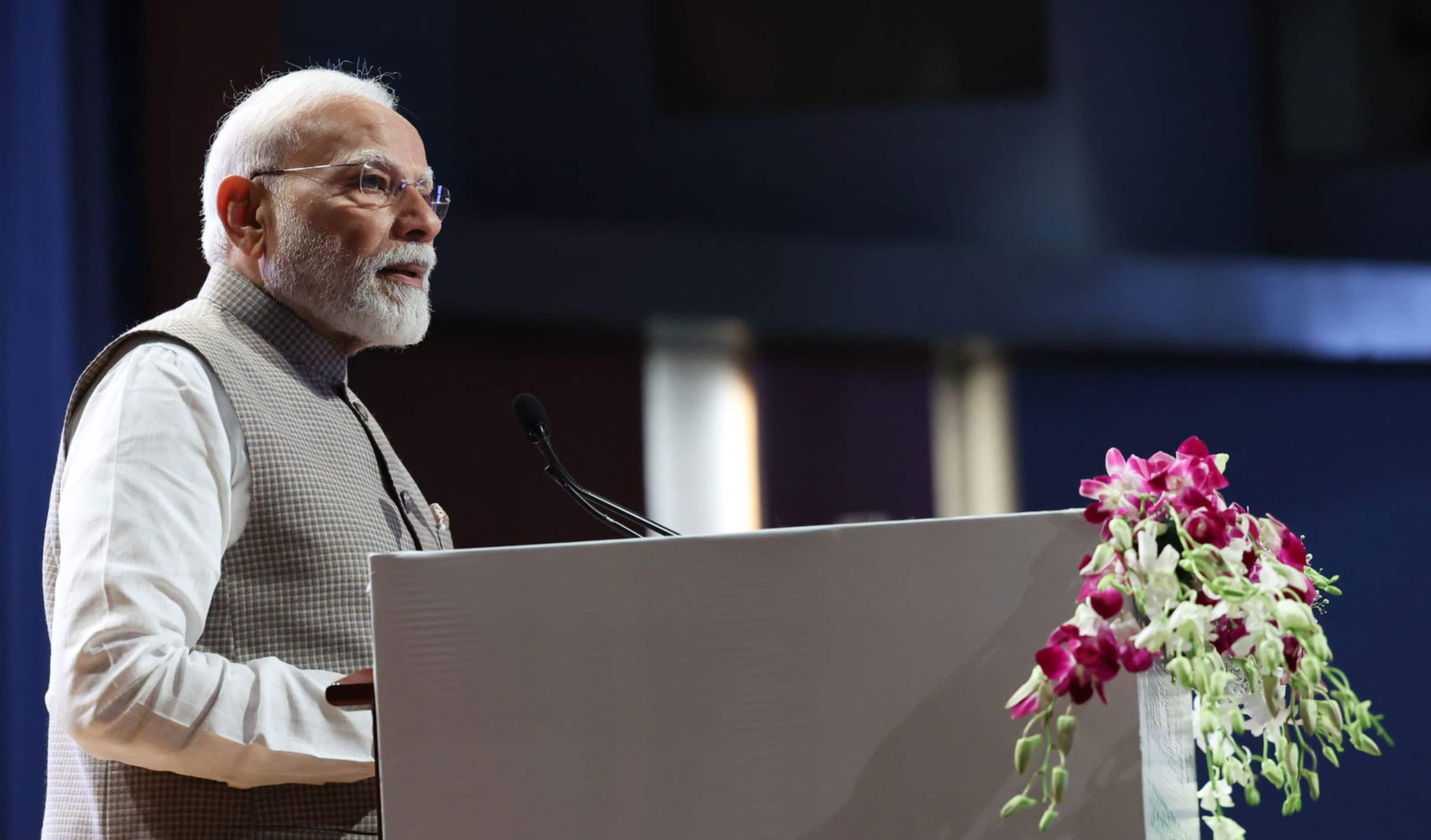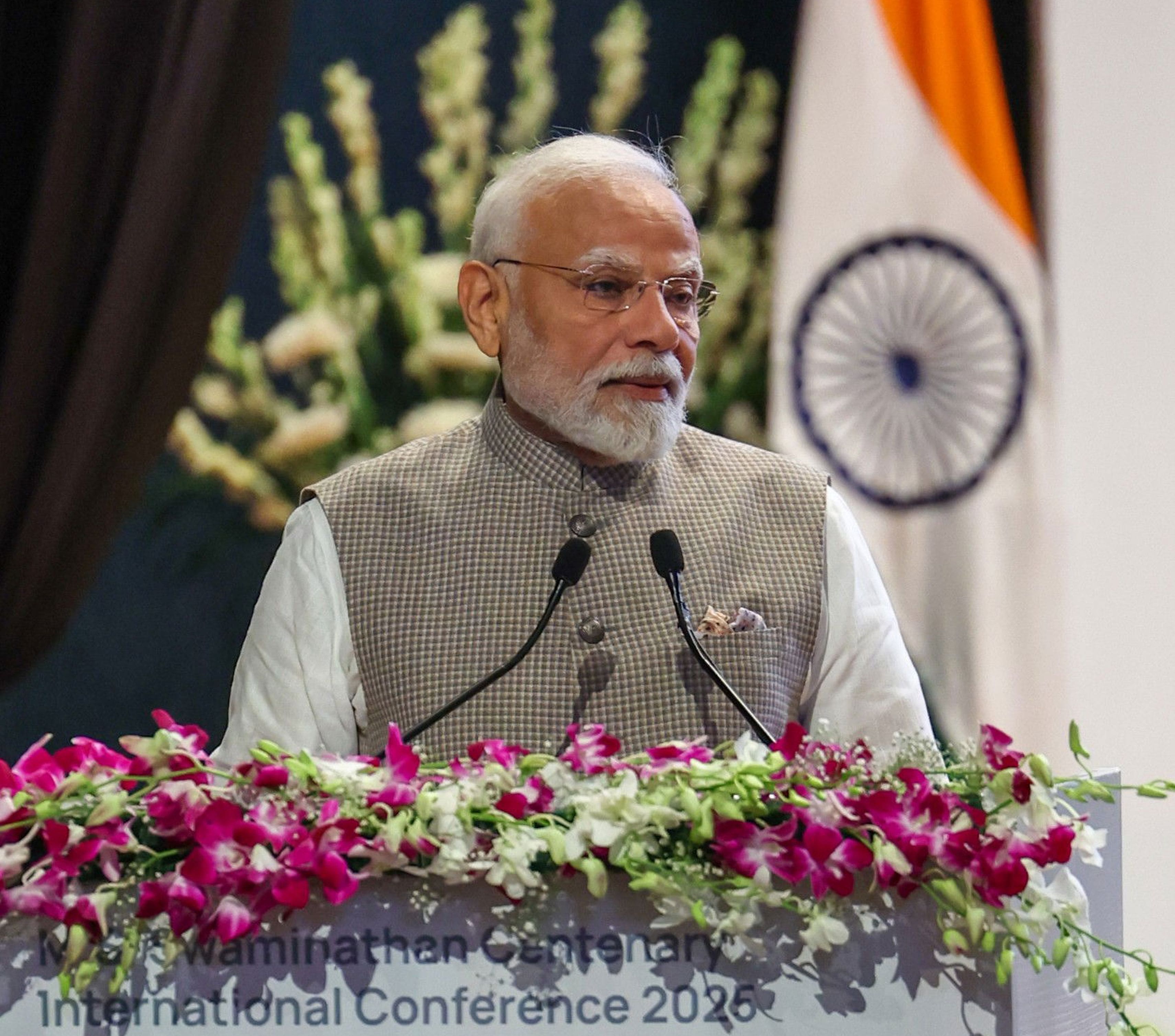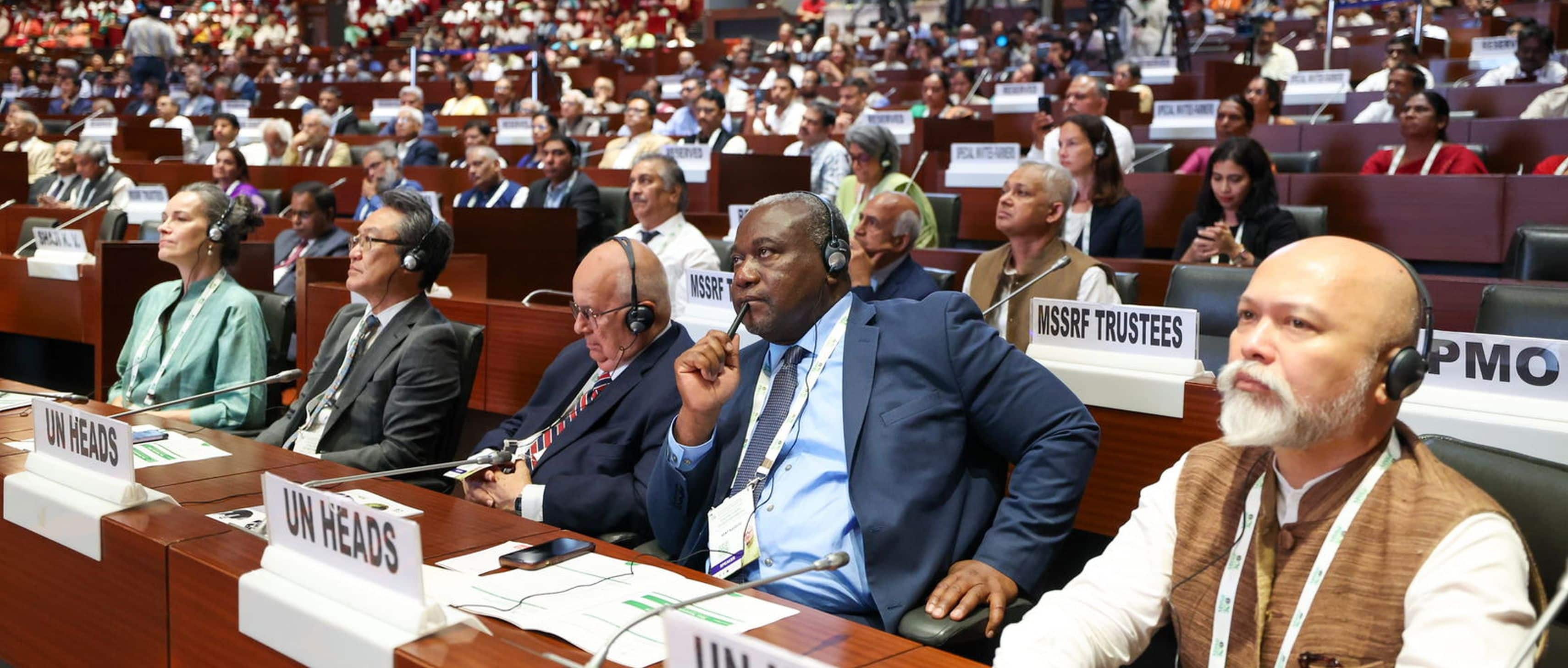My colleague in the council of ministers, Commerce and Industries Minister Shri Suresh Prabhu Ji, Housing and Urban Affairs Minister Shri Hardeep Singh Puri Ji, Minister of State for Commerce and Industries Shri C. R. Chaudhary Ji, officials of the Ministry of Commerce and other relevant Ministries and the dignitaries present here.
First of all I congratulate all of you for the foundation stone laying for the Vanijya Bhawan. The work on it has started today and as I have been told on the dais that the work will be completed by December next year. I believe that Vanijya Bhawan will be constructed within the stipulated time and very soon people are going to start getting its benefits.
Friends, why I am talking about the time before anything else because of all the buildings, for which I have got the opportunity to either lay the foundation stone or the opportunity to inaugurate them during the tenure of this government, had one common thing. The common thing was that these buildings also reflect the style of working of respective governments. And the difference between a country moving towards a New India and the old system can also be gauged from these things.
Friends, I would like to give you some examples. I remember that Pravasi Bhartiya Kendra was dedicated to the people in 2016 but the announcement for it was made at the time of Atal Bihari Vajpayee. It took 12 years to construct that building. The decision to build Dr. Ambedkar International Centre which was dedicated to public last year was taken in 1992. However, its foundation was laid in 2015. It was dedicated to the public in 2017. It means it took 23-24 years to construct.
Friends,
I have dedicated the new building of Central Information Commission to the nation in March this year. The demand for a new building for CIC was made 12 years back. But the construction was started by this NDA government and it was finished within the stipulated time.
There is another example of Ambedkar National Memorial built on the Alipur Road. This building too was dedicated to the public two months ago. The discussion for this memorial went on for years, it was fast tracked during the period of Atal Ji, however, after that all work was stopped for the next 10-12 years.
The story of these four symbols, the buildings in Delhi is that when the government doesn’t function in silos, when all the departments, all the Ministries work together by coming out of their silos then work is done fast. The country has moved ahead of the tendency of putting hurdles, creating confusions and delaying things.
I am happy that today a beginning has been made to add the fifth symbol to Delhi.
This is my desire that the work of breaking the silos in every field of commerce sector will be done in an even better manner from under one roof. And I am confident that it will be materialized.
Friends, today India is at a very critical juncture. Our demographic dividend can be a matter of envy for any country. Our youths provide a new energy to our democracy. These young people are the foundation of the 21st century India. Fulfillment of their hopes and aspirations is not the responsibility of just a few Ministries but it is a collective responsibility of all of us.
India has lost the opportunity to take advantage of industrial revolution in the last century. There were several reasons behind that at that time. However, now there are equal number of reasons because of which India can become one of the countries leading the industrial revolution of this century. The fourth industrial revolution, digital technology is the basis for this revolution, which is also called the fourth industrial revolution, and India is certainly ahead of many countries in this field.
Today, you will find that digital technology is the main thing in realizing all the goals, among all the things done by the Ministry of Commerce. Take the example of this Vanijya Bhawan. The land on which this building will be constructed, it was earlier under the control of the Directorate General of Supplies and Disposals. Now this more than 100 years old organisation has been closed and it has been replaced by a body based on the digital technology - Government-e-Marketplace- GeM. GeM has completely revolutionised the way the government procures the goods required by it.
Today, more than 1.17 lakh companies, small and large sellers, have joined this platform. More than five lakh orders have been placed to these sellers through GeM. Goods worth more than Rs. 8,700 crore have been procured through GeM in a very short span of time.
The Ministry of Commerce deserves to be praised for the way it has provided the opportunity to small entrepreneurs located in far-flung areas of the country to directly sell their products to the government. However, I think that it’s the beginning of a long journey for you people.
How GeM can be further expanded, how it can take the country’s MSME sector and small entrepreneurs towards international commerce, a lot still needs to be done in this regard. Today, the presence of more than 40 crore smart phones, the growing number of internet users and cheap data, all these things are making your work even easier.
Friends, there is a saying in our country that: Bharah Samarthanam Kim Door Vyavasayinam, it means that nothing is heavy for a powerful person. Similarly, no place is far away for businessmen. Today, the technology has made business so easy that distances are becoming smaller day by day. The more this technology will be used in the country’s business culture the more it will be beneficial.
We have seen that how in less than a year the GST has changed the way business is done in India. Whether it would have been possible if the technology was not there? No. Today, the number of people joining the indirect tax regime has been expanding at a very fast pace because of GST.
While only 60 lakh people were linked to our country’s indirect tax system since independence, more than 54 lakh people have applied to join GST within 11 months of its implementation and out of this number more than 47 lakh people have already got registered with GST. So the total number of registered entities have already crossed one crore.
This also shows that there will be good results once things are simplified, once the path of Minimum Government, Maximum Governance is being followed. More and more people now come forward to join the mainstream of development.
Friends, you are well aware that in the last four years the government has constantly worked to develop a people friendly, development friendly and investment friendly environment. India’s macro economic indicators remain stable despite a lot of global challenges - be it inflation or fiscal deficit or be it current account balance - all these indicators have recorded improvement in comparison with the numbers during the previous government.
Today, India is playing an important role in the world economic growth. The economic growth of the country has touched the level of 7.7% in the last quarter. The Foreign Direct Investment (FDI) and the growth in Foreign Exchange Reserve of the country during the last four years is a record in itself.
Today, India is among the top two emerging market performers in the FDI Confidence Index. Getting to the 100th spot from 142nd spot in the ease of doing business ranking, improvement of 19 points in Logistics Performance Index, getting to the 39th position in Global Competitiveness Index from the 71st position, and 21 point jump in Global Innovation Index, all these are the results of the same vision.
You must be aware that recently India has secured a place among the top five Fin Tech Countries. However, along with these positive indicators there is a bigger question – what next.
Friends, we need to work on our target to get double digit growth rate by going beyond the growth rate of 7-8%. Today the world is looking at India with the expectation that how many years India will take to join the economies of the size of $5 trillion.
I believe that all officers in the Ministry of Commerce should take these goals as a challenge. This progress in the economic front is directly related to the life of the common man of the country.
That is why you would have noticed that whenever I raise the issue of Ease of Trading, Ease of Doing Business I also always raise the issue of Ease of Living. Everything is connected with each other in this interconnected world.
When it is easier to take an electricity connection, when construction permits are granted soon, when industries, companies don’t have to grapple with the processes then these things also benefit common man. That is why it is also a challenge for you people that whatever bottlenecks are remaining in the different sectors, wherever work is being performed in silos, all these should be corrected as soon as possible. Particularly, the problems that are being faced in the infrastructure sector, wherever the transaction cost is high, those things that act as an impediment in boosting the manufacturing, the things those lead to inadequate diversification of services, it’s extremely necessary to end them, to improve upon them.
I am glad that recently the Department of Commerce has taken upon itself the responsibility for the integrated development of logistics sector. This initiative is going to play an important role in improving the trade environment in the country.
Friends, having an integrated logistics action plan is the need of the hour and it’s also necessary for a New India. This goal can be achieved by amending the policies and existing procedures and by increasing the use of modern tools.
I have been told that the Department of Commerce has also been working on the direction of an Online Portal. It’s extremely essential for all the ministries, for all the states to work collectively to further strengthen India’s position in global trade and to take it to a new height. This is what we call the ‘Whole of Government Approach’. It needs to be adopted.
It is also a good step that the Council for Trade Development and Promotion has been working to create an environment in the States and union territories for encouraging international trade. If we want to boost India’s exports then we must move forward by making the states active partners in this thing.
I believe that the faster we move in this direction by formulating a State level export strategy, by harmonizing it with the national trade policy, by providing economic assistance and also by taking along all the stakeholders, the more it will be beneficial for the country.
Friends, in order to increase India’s presence in the international market it’s extremely important to focus on new products and new markets while maintaining our traditional products and markets. We will have to make ourselves stronger to face the conditions outside the country in addition to facing the conditions inside the country.
The results will be visible when we will move forward while maintaining balance between short-term developmental gains and long-term sustainability. I consider the midterm review related to foreign trade policy which was conducted the last year, an extremely positive initiative. Every change which was made by increasing the incentives and by holding the hand of MSME sector to boost the export is commendable. It is also directly related to the country’s employment related needs.
There is another important issue and that is the quality of the product. And this was the reason that I had made an appeal for Zero Defect-Zero Effect on the 15th of August in 2014 from the Red Fort. Whether it is a small factory or a large factory, every manufacturer should be encouraged for this thing that it should manufacture such kind of products which are zero defect and nobody should send back our exported goods. In addition to this, I had also discussed the issue of Zero Effect, it means that our products should not have any negative impact on environment.
This awareness about the quality of product will work to bring glory to Make in India and to further strengthen the identity of a New India. You would also be feeling proud when you would have noticed that today the number of mobile manufacturing units in our country has gone up to 120, which was just 2 in 2014, and they have been manufacturing world class quality products in the country.
Friends, this is the time for making solemn pledges, it’s the time for accepting the challenges. The Department of Commerce should try to ensure that it will double India’s share in the total global trade, that it will take to at least 3.4% from the present 1.6%. It’s contribution to the world economy will be equal to India’s GDP. This will create new avenues for employment in our country and our per capita income will also go up. Every department of the government and all the people of Export Promotion Councils present here will have to make a collective effort in order to achieve this.
One more resolve has to be taken regarding imports. Can we reduce our dependence on imports in certain sectors? Whether it is import of energy or import of electronic goods or weapons and gadgets needed in defence sector or medical devices? Whether it is possible to do this through Make in India? Ten per cent reduction in the imports through domestic manufacturing can boost the country’s income by up to Rs. 3.5 lakh crore. It can become an effective tool for taking India’s GDP growth in to double digits.
I would like to give you an example of manufacturing of electronic goods. Whether it is not a challenge for all of you that we are still required to purchase 65% of our total requirement of electronic goods from abroad? Can you make the country self reliant in the manufacturing of electronic goods as it has been done in the field of mobile phone manufacturing by accepting this challenge?
Friends, you are also familiar with that an extremely important step in the direction of reducing the dependence on imports was taken last year. Emphasis has been placed on procuring all the goods and services that are procured by all the departments and institutions from domestic suppliers through an order of Public Procurement (Preference to Make in India). Every effort should be made to earnestly implement this order.
All of you, all the units of government will have to further strengthen your monitoring system to implement this order. The government has taken several other important decisions to boost the domestic production. Whether it is regulatory framework or be it making the regulatory framework even easier or be it the investor friendly policy or be it the stress upon infrastructure and logistics, all these things are being done so that India can be made self-reliant; so that it does not lag behind a bit in the industrial revolution of the 21st century.
My only expectation is that this pride that has been increasing alongside Make in India, may it bring repute to the new Vanijya Bhawan which is going to be constructed.
Friends, you also got one auspicious thing done by my hands before I came here. I got the good opportunity to plant a Bakul or Maulshri sapling in this premise. Maulshri has been respected since mythological period, it is full of numerous medicinal properties and Maulshri tree provides shade for years. I have been told that there is a plan to plant nearly one thousand more trees here in addition to this.
I conclude my speech with this expectation that may you people give your best, that all of you make your best effort for making a New India in this environment friendly atmosphere which is equipped with modern technology.
Once again many-many congratulations to all of you on the beginning of the construction of Vanijya Bhawan.
Thank you.













